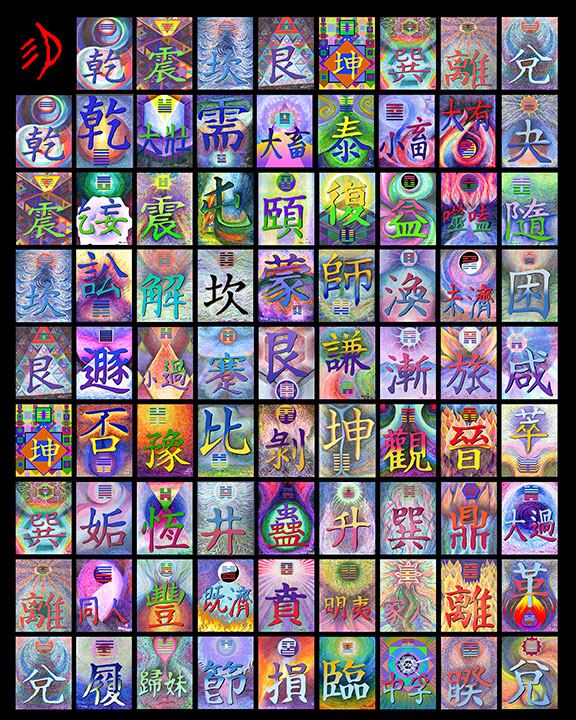
Gui Cang may be literally translated into "return and be contained," which refers to earth as the first hexagram itself indicates. Lian Shan, meaning "continuous mountains" in Chinese, begins with the hexagram Bound (艮 gèn), which depicts a mountain (::|) mounting on another and is believed to be the origin of the scripture's name.Īfter the traditionally recorded Xia Dynasty was overthrown by the Shang Dynasty, the hexagrams are said to have been re-deduced to form Gui Cang (《歸藏》 Gūi Cáng also called Gui Cang Yi), and the hexagram Field (坤 kūn) became the first hexagram. By the time of the legendary Yu (禹 Yǔ) 2070 BC–2061 BC, trigrams had supposedly been developed into 64 hexagrams (六十四卦 lìu shí sì gùa), which were recorded in the scripture Lian Shan (《連山》 Lián Shān also called Lian Shan Yi). In this respect he is seen as an early culture hero, one of the earliest legendary rulers of China (traditional dates 2852 BCE- 2738 BCE), reputed to have had the 8 trigrams (八卦 bā gùa) revealed to him supernaturally. Traditionally it was believed that the principles of the I Ching originated with the mythical Fu Hsi (伏羲 Fú Xī). The translation of the title into English used to be Book of Changes, though a slightly more accurate name, Classic of Changes, appears more frequently in recent use. (易一名而含三義:易簡一也;變易二也;不易三也。 commented on by Zheng Xuan (鄭玄 zhèng xúan) in his writings Critique of I Ching (易贊 yì zàn) and Commentary on I Ching (易論 yì lùn) of Eastern Han Dynasty).ĭue to the profound ideas conveyed by the title itself, it is practically impossible to arrive at an unbiased translation which could preserve the original concepts intact.

While everything in the universe seems to be changing, among the changing tides there is a persistent principle, a central rule, which does not vary with space and time.

Everything in the universe is continually changing.
#The i ching series
The book consists of a series of symbols, rules for manipulating these symbols, poems, and commentary. In Western cultures, the I Ching is regarded by some as simply a system of divination many believe it expresses the wisdom and philosophy of ancient China. The philosophy centers on the ideas of the dynamic balance of opposites, the evolution of events as a process, and acceptance of the inevitability of change (see Philosophy, below). A symbol system designed to identify order in what seem like chance events, it describes an ancient system of cosmology and philosophy that is at the heart of Chinese cultural beliefs. The I Ching (often spelled as I Jing, Yi Ching, Yi King, or Yi Jing also called "Book of Changes" or "Classic of Changes") is the oldest of the Chinese classic texts.

Related subjects: Religious texts I Ching


 0 kommentar(er)
0 kommentar(er)
